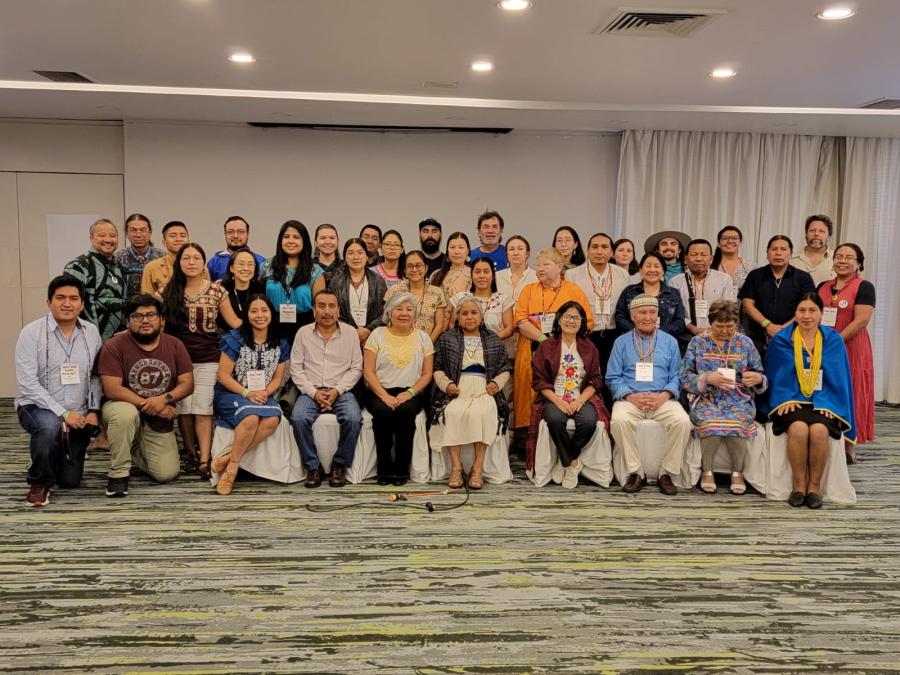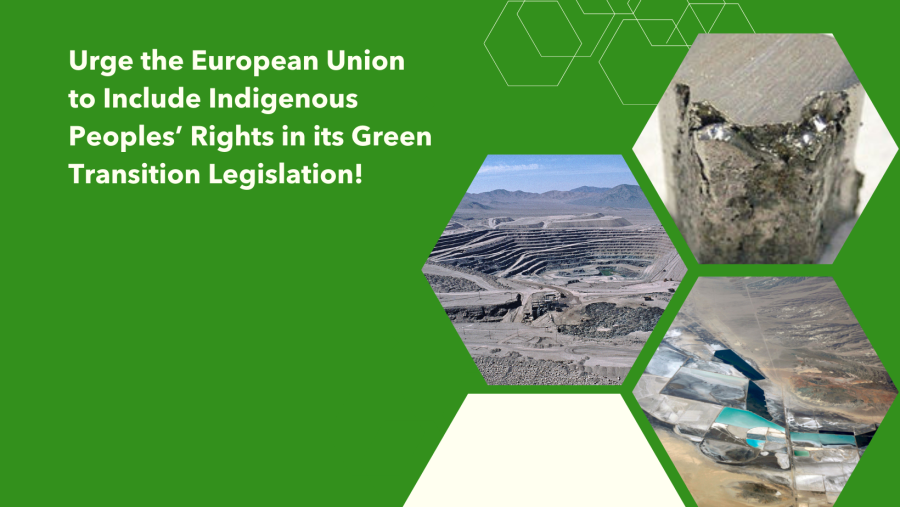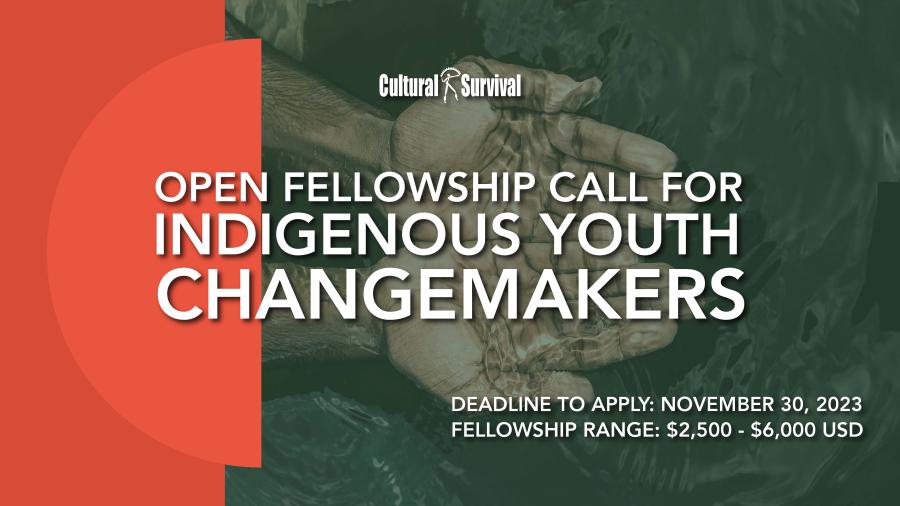
By CS Staff
The President of the Republic of Colombia, Gustavo Petro, has announced that the 16th meeting of the Conference of the Parties to the Convention on Biological Diversity (CBD COP16) will be held in Cali, Colombia, the capital of the Colombian Pacific, from October 21-November 1, 2024. In a presidential address, Petro emphasized that this conference will be a "Meeting of the world in Colombia [to] discuss the fundamental question for humanity today: how to preserve life on the planet in all its natural and human diversity."
This is the first meeting of the Parties of the Convention since the adoption of the Kunming-Montreal Global Biodiversity Framework, which aims to eliminate key drivers of biodiversity loss. The Framework sets four main transformative goals (A-D) through the achievement of 23 Targets that aim to protect nature, including: halting human-caused extinction of threatened species and reducing the rate of extinction of all species 10-fold by 2050; promoting the sustainable use and management of biodiversity; fair sharing of the benefits from the utilization of genetic resources and digital sequence information on genetic resources; and making accessible adequate means of implementing the Global Biodiversity Framework Parties, particularly those categorized as Least Developed Countries and Small Island Developing States.
The implementation of the Kunming-Montreal Global Biodiversity Framework, which will be a key issue at the Conference of the Parties, connects issues of biodiversity conservation and human rights, including the issues of access to justice and protection of environmental human rights defenders, rights of Indigenous Peoples to lands, territories, and resources, and recognition of the values, knowledge, and contributions of Indigenous Peoples to biodiversity conservation and sustainable development of nature.
Cultural Survival’s team participated in the negotiation process of CBD COP15 under the umbrella of the International Indigenous Forum on Biodiversity, which brings together Indigenous Peoples from the world’s seven socio-cultural regions. The results of these negotiations are reflected in 20 references to Indigenous Peoples, 8 references to Traditional Knowledge, 2 references to Free, Prior and Informed Consent, and 1 reference to the UN Declaration on the Rights of Indigenous Peoples in the agreed text of 7 of the 23 targets.
National Implementation
The Kunming-Montreal Global Biodiversity Framework is essentially a guide that Parties of the Convention can use to review, develop, update, and implement their National Biodiversity Policies, Goals, Targets, Strategies, and Action Plans in accordance with which they will submit their future National Reports.
It is expected that Parties will present their updated National Biodiversity Strategies and Action Plans at the upcoming conference in Cali for the effective implementation of commitments under the Kunming-Montreal Framework. Countries where Indigenous Peoples live will have to demonstrate how they have included their rights and interests as set out in the seven targets where they are mentioned, especially Target 3, which aims to conserve 30 percent of the planet’s biodiversity by 2030, specifically in reference to Indigenous Peoples' rights to lands, territories, and resources.
The text reads, in part, that by 2030 “at least 30 percent of terrestrial, inland water, and coastal and marine areas...are effectively conserved and managed through ecologically representative, well-connected, and equitably governed systems of protected areas and other effective area-based conservation measures, recognizing Indigenous and traditional territories where applicable, and...recognizing and respecting the rights of Indigenous Peoples and local communities, including over their traditional territories.” The weak wording, including the phrase “where applicable,” raises concerns of the potential for an interpretation that does not recognize self-governance and violates the rights of Indigenous Peoples, including forced relocation from their ancestral lands and waters.
Indigenous Peoples' traditional territories account for 22 percent of the planet's land surface and as much as 80 percent of the world’s biodiversity. Therefore, their governance systems should be recognized and Indigenous Peoples should be involved as partners in the implementation of the Kunming-Montreal Framework in line with Target 3 ensuring Free, Prior and Informed Consent and compliance with the UN Declaration on the Rights of Indigenous Peoples.
Only a human rights-based approach to biodiversity conservation and explicit safeguards for Indigenous Peoples’ rights to Target 3 will make possible the full achievement of the 30x30 Global Goal to protect 30 percent of terrestrial and marine habitat by 2030. Future analysis of the updated National Biodiversity Strategies and Action Plans and their implementation at the national level will show how the rights of Indigenous Peoples have been respected and effectively incorporated, as well as how lands and resources will be recognized as Indigenous and traditional territories.
Resource Mobilization
The full and equitable implementation of the new Kunming-Montreal Framework requires adequate financial and technical resources, capacity building, information sharing, and access to educational resources adapted to participants with varying levels of expertise.
Resource mobilization will be a key issue at the upcoming meeting in Cali, as Parties will consider proposals for a global biodiversity financing instrument based on an analysis of funding gaps in the international system, including increasing funds from all sources. Currently, there are a number of international financial mechanisms aimed at preserving biodiversity, including programs to address climate change mitigation, adaptation, loss and damage, and support protected areas.
The question is, how effective are these multi-billion dollar funds, programs, and projects, especially for Indigenous Peoples? For example, how will Indigenous Peoples’ rights and needs be included in the “Protecting Our Planet Challenge” and its $5 billion commitment toward protecting and conserving 30 percent of the planet by 2030?
To support the Kunming-Montreal Framework, countries in the Global North have agreed to provide at least $20 billion annually to support biodiversity conservation in so-called developing countries by 2025, and at least $30 billion dollars by 2030. The Global Biodiversity Framework Fund was established under the Global Environment Facility to support the implementation of Kunming-Montreal Framework. It was launched at the Seventh Global Environment Facility Assembly in Vancouver in August 2023, where Canada and Great Britain announced contributions of $200 million CAD and £10 million GBP, respectively, to begin its capitalization.
Around 20 percent of the resources of this Global Biodiversity Framework Fund fund will go to supporting Indigenous Peoples' initiatives to protect and preserve biodiversity. Indigenous Peoples welcome this step, but there is a question of access to these resources since some Indigenous Peoples (or their organizations) are not recognized or supported by their governments.
Indigenous Peoples have been advocating for direct and fair access to funds and financial mechanisms for many years. Having long proven their adeptness at managing territories as well as financing, they do not need intermediaries. Allowing access to resources is direct and fair, and encourages essential transparency. Indigenous Peoples must know where the funds have been directed and be able to assess their real impact on all aspects of life (legal, social, cultural, economic, and non-economic).
Indigenous Peoples’ Rights
It should be noted that the Pacific region of Colombia is both rich in biodiversity, and a place where the 30 percent of the population who self-identify as Afro-descendants or Indigenous face systematic violation of their human rights. Colombia holds 817 delimited Indigenous reserves. However, many Indigenous Peoples are not able to fully enjoy their rights or live peacefully in their land, becoming victims of armed conflict and violence on a daily basis.
Three out of four murders of environmental defenders take place in Latin America. Of the 331 killings of human rights defenders in 2020, 177—more than half—occurred in Colombia. Globally, 70 percent were Indigenous. The Colombian National Indigenous Organization has reported the intensifying humanitarian crisis taking place in Indigenous territories in the last few years. In 2022, 453,018 Indigenous persons were victims of confinement, forced displacement, harassment, and other attacks. In 2023, according to Cultural Survival’s non-comprehensive data collection, 39 Indigenous defenders were murdered in Colombia, and many more were attacked, threatened, or criminalized.
The situation in the Cauca region is especially concerning. The Association of Indigenous Councils of North Cauca published its 2022 report, "Territorial Disharmonies," emphasizing that the armed conflict aims to destroy territorial autonomy and exploit natural resources. The report cites alarming figures, including the recruitment of 250 children in 2022, 97 homicides, 88 threats, and various other forms of violence. The conflict is linked to strategic positions for drug trafficking, particularly involving the National Liberation Army and FARC dissidents. Recent events, such as several murders of Indigenous Guards and defenders and the recruitment and killing of Murui Indigenous children, highlight the ongoing crisis.
President Petro says he is planning to use CBD COP16 to draw attention to the crisis of human rights defender killings that have arisen in the country through the development and conclusion of a social pact. He noted that COP16 is an opportunity to promote a “Social Agreement of Justice” for the entire Pacific coast of Colombia, which encompasses Nariño, Cauca, Valle del Cauca, and Choco. According to the official government website the motto CBD COP16 is “Peace with Nature.” It states that dialogue will be prioritized through collective activities with farmers, Indigenous people, and ethnic communities, promoting environmental and social development.
Cultural Survival hopes that hosting this global event, with the participation of governments from almost 200 countries, will bring attention to the violation of Indigenous Peoples’ rights in Colombia and around the world.
We also call on governments to include representatives of Indigenous Peoples in their official delegations in recognition of their contribution to the sustainable conservation of nature and biodiversity, and to support Indigenous rights, including Indigenous Peoples’ full and effective participation in decision-making.
We call on Indigenous organizations, NGOs, educational institutions, and environmental organizations to support the participation of Colombia's Indigenous Peoples in these negotiations.



